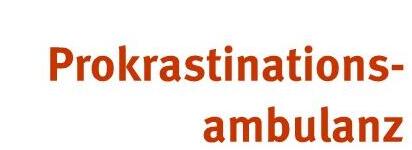Offers for students (free of charge!)
Science subjects are popular at the University of Münster and have a lot to offer. However, it is well known that drop-out rates in science subjects are high throughout Germany. There are various reasons for this. Especially in the introductory phase of their studies, many students are faced with new and high demands. In our experience, in addition to subject-related difficulties, difficulties in self-organization and self-control are often reasons why students cannot keep up with their workload. For example, they may have problems with regularly completing their exercise sheets and lose touch early on. This can lead to demoralization, performance problems, a high perceived study load and even dropping out.
Our special “STEM.projekt” offer is aimed in particular at students in their first three Bachelor's semesters. After an orientation and in-depth discussion and diagnosis of the issue, we offer individual counseling and group training.
In detail, we have the following offers for students in the STEM.projekt:
Self-test
In a 30-minute German self-test, you can have your own procrastination behavior assessed anonymously online. There is immediate feedback and, if necessary, recommendations as to which further steps would be useful.
STEM.advice
In specific individual and group counseling sessions, the respective problems in connection with procrastination and other work disorders are worked on in up to 10 sessions. Appropriately trained therapists provide support on topics such as “strategies against procrastination”, “problems with study groups”, “lack of motivation”, “personal study organization” or “thoughts of dropping out”.
Further information and registrations can be made by telephone on 0251-83-31344 or mint.projekt@uni-muenster.de. We look forward to hearing from you!

